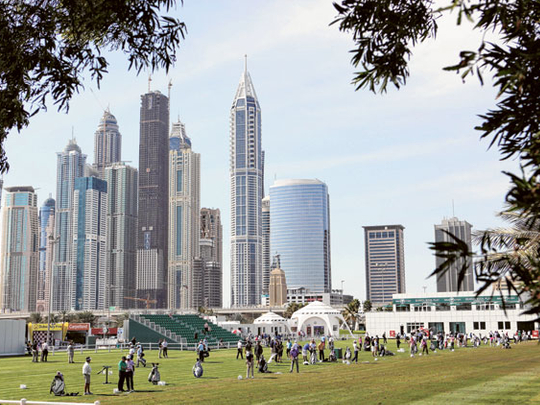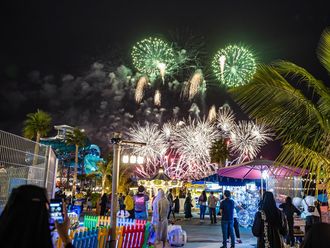
Abu Dhabi: The Emirates Tourism Council has reviewed the latest efforts made to boost domestic and foreign tourism in the UAE.
This came through at the council's third meeting chaired virtually by Dr Ahmad Belhoul Al Falasi, Minister of State for Entrepreneurship and SMEs and Chairman of the Council, in the presence of local tourism officials to discuss the updates on tourism development efforts in the UAE and the key national initiatives that were launched during the previous period to boost tourism activities in the country. A report was presented to Al Falasi on the key indicators in hospitality and tourism industry during the first half of the year.
The tourism sector reported remarkable growth after hotels experienced increase in occupancy rate of 62 per cent during the first half of 2021 compared to 53.6 per cent reported during the same period in 2020, while total revenues reached Dh11.3 billion, compared Dh8.6 billion in the corresponding period. The total number of hotel guests during the first half of 2021 reached 8.3 million guests nationwide, a 15 per cent increase compared to the same period of the previous year.
The council has approved a joint action plan of the Ministry of Economy and local tourism departments. The joint initiative aims to increase the inflow of international tourists to the UAE as well as open new tourism markets to attract tourists. The plan includes large-scale promotional campaigns targeting several promising destinations that could drive tourists to visit the UAE, introducing the long-term and multiple-entry tourist visa recently announced by the government, and promoting the country’s distinctive tourism destinations, recreational activities, and services.
Dr Ahmad Belhoul Al Falasi said: “The tourism sector was able to achieve outstanding performance rates and enhanced the level of recovery from the impact of the Covid-19 crisis to stand today and move towards a new stage of growth and development to further increase its contribution to supporting the national economy.”
Al Falasi highlighted that with the support and directives of the country’s wise leadership and the relentless efforts across the country to distribute COVID-19 vaccines on a large scale and at a rapid pace, more than 83 per cent of the residents have been vaccinated, which has strengthened the country’s ability to contain the pandemic and sped up its recovery and growth rates in various sectors, foremost of which is the tourism sector. He commended the great efforts and the continuous cooperation and coordination between local tourism authorities and various departments to revitalise and develop the UAE tourism sector.
He explained that the results achieved during the last 12 months provides a strong foundation to increase the number of tourists entering the country during Expo 2020 Dubai, noting that the outputs and plans that were agreed upon during the council’s meeting were important as they would offer advanced solutions and initiatives to help open new markets and enhance the country’s position on the global tourism map as one of the world’s best and safest sustainable tourism destinations.
He stressed the importance of the recently-developed national initiatives to advance the tourism development process in the country, specifically the long-term and multiple-entry tourist visa initiative, which will greatly contribute to enabling greater numbers of international tourists to visit the UAE.
The council also adopted a coordination system at the federal and local levels to develop new and integrated initiatives and solutions where all the emirates’ tourism sector can benefit from the hosting of the Expo 2020 Dubai.
Emirates Tourism Council also approved the practical steps for joint planning of upcoming domestic tourism campaign during the winter season in the country, including the proposed innovative initiatives and events. Furthermore, it agreed on the process to support the gathering of tourism data in the country aimed at promoting proactive tourism development efforts.
The number of hotel guests from within the country as part of the domestic tourism activities reached to 2.3 million during the first half of this year (2021) compared to 1.3 million hotel guests during the same period in 2020, recording a high growth rate of 77 per cent.






